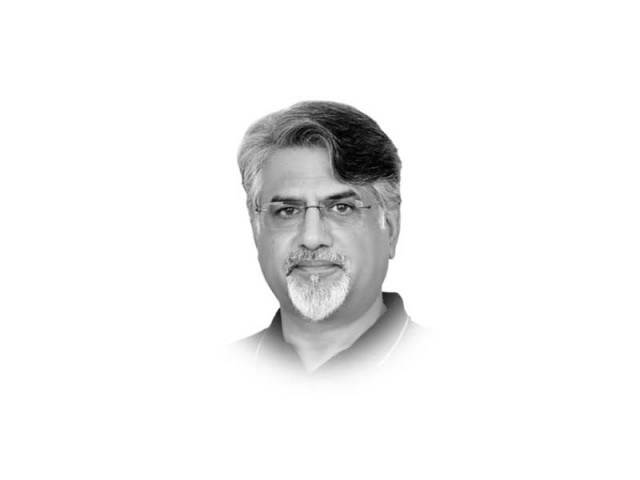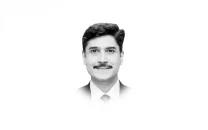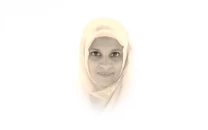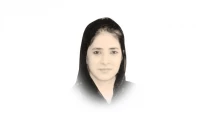Mute world of academia and dead world of politics
Smartest thing that politics of any country can do is to correctly anticipate what lies ahead

The smartest thing that politics of any country can do is to correctly anticipate what lies ahead. If you know what lies ahead you can plan in advance or alternately stop doing in present what may lead to an undesirable future. Political forecasting thus becomes very important tool and an unavoidable feature in the lives of nation states. In the developed world forecasting about what lies ahead is a job relegated to the world of academia. Without correctly comprehending the internal and external environment politicians can never make sense of the complex world around them and thus in the global north politicians don’t sell to the public their mindless utopian political views intended to arouse emotional public responses but thoughtful analysis based on academic theories that emphasise the basis of the political rights and wrongs that affect their decision-making and achievements.
The difference is simple: in the world of academia the men and the women have the time, the ability, the energy, the willingness and the higher sense of purpose to think about the flaws in any system and imagine and recommend ways to make it better. If the world of academia is regarded, encouraged and allowed to proceed with its work, the eventual beneficiary is always the state. In the US, the national security strategy, which represents the vision of the American President, is presented annually to the Congress. The report forecasts the strategic threats to the country. The US national defense strategy, published every four years, highlights how the department of defense will contribute to achieving the national security strategy objectives in order to maintain security and prosperity worldwide. Ironically, in the US national security and defense strategies, one of the important components of meeting the global threats is education in the universities. The continued funding of R&D in universities is critical to the American dream of global leadership because reasonable politics in global north is the product of universities. It is rooted in enlightenment and thus politicians employ reason more than rhetoric to strategise and plan and make the world a better place to live. Professors that instruct and mentor students are highly regarded and respected. Not treated as they are treated in the global south or as I might say that Socrates was treated by Athens, to drink Hemlock or shut his mouth but like Aristotle who instructs and mentors the future conquerors of the world like Alexander the great. One such man was Seymour Martin Lipset.
Lipset (1922-2006) was an American sociologist, political scientist and author of many books including Political Man in which he attempts to isolate the conditions which sustain democracy in the modern world. He dwells upon the important question of relation between economic development and political instability and asks an important question — Is constitutional democracy viable in the countries where material want is pervasive? But his great contribution is the formulation of the classical theory of political sociology — the theory of modernization. For him, “authoritarianism is just a passing stage” for any state. His modernization theory maintains that all societies as they grow are headed towards a more modern, developed and civilized existence, and in particular towards democracy. Basing on Lipset’s modernisation theory, both Daron Acemoglu and James Robinson predict that inclusive institutions will emerge as a byproduct of this growth process and modernisation in their bestseller work, Why Nations Fail. The pivotal thesis of this book is built around the idea that extractive institutions must give way to inclusive institutions if a nation needs to progress. The difference in extractive and inclusive institutions is best understood by understanding ‘the bird in the cage’ analogy for the economy and how an institution of state handles the economy. The bird is the economy and the cage is the regime’s control over the economy. The cage must be enlarged to make the bird healthier and more dynamic but it cannot be unlocked or removed lest the bird fly away.
Prosperity of a state is not an end but an ongoing process and how to engineer this prosperity is a science that is debated in parliaments and senates. Our politicians must realise that for the countries of the global south there is too much catching up to do. Even if we start today, it will take three to four generations to catch up with the world of global north. It took the global north past 300 years to grow and become rich. We already know how they achieved it. They had democratic regimes, respected civil and human rights, enjoyed liberal and open markets as the vehicles of wealth and had big hearts to allow inclusive political and economic institutions.
There can be absolute consensus on the thesis that ignorance has led us to where we stand. The world of academia has an important role of enlightening rulers in most humble ways as all theories and what theorists predict is not always right. Some theories are defective, but it is only the policymakers and the rulers who can get us out and it is the job of the academia to not only provide the right advice but convince politicians on what is right.
A state cannot base its lack of prosperity on the ignorance hypothesis of the politicians. Some of these politicians, when they are in parliament and senate, are exposed to the constraints that the political and economic institutions impose on them and thus these institutions shackle their will to reform. This doesn’t end here; in the countries of global south, even when reforms are adopted, their intent is made controversial either by design or by bad practices and thus, they end up being subverted. One can think about many such reforms. The 18th amendment, proposed and intended to make provinces autonomous, ended up being viewed as a tool of provincial corruption. Healthcare facilities offered to the public were regarded as an act of political showmanship to benefit a political party and not the public.
Politicians who attempt to engineer prosperity by trying to cure symptoms and not the disease will continue to fail. Discovering the root cause of the social and political problems is primarily an academic debate that travels from within the four falls of the universities of the countries to parliaments and senates. Silence is not an answer to our problems; the answer is greater academic uproar, pandemonium and noise in debating and theorising what lies ahead. This must reach those not only involved with policymaking but those involved with practising the statecraft. Mute world of academia is a recipe to a dead world of politics.
Published in The Express Tribune, December 24th, 2023.
Like Opinion & Editorial on Facebook, follow @ETOpEd on Twitter to receive all updates on all our daily pieces.


















COMMENTS
Comments are moderated and generally will be posted if they are on-topic and not abusive.
For more information, please see our Comments FAQ